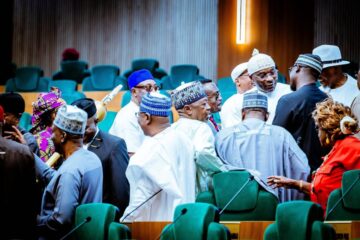FG orders Twitter, others to delete porn posts within 24 hours

The Federal Government has directed online interactive platforms, such as Twitter, WhatsApp, Facebook, Instagram, and TikTok to ensure they remove, disable or block access to any non-consensual content, which displays partial or full nudity, sexual acts, deep fake or revenge porn within 24 hours.
The directive was included in the recently released Code of Practice for Interactive Computer Service Platforms/Internet Intermediaries (online platforms).
According to the document, these online platforms have to “act expeditiously to remove, disable, or block access to non-consensual content that exposes a person’s private areas, full or partial nudity, sexual act, or revenge porn, where such content is targeted to harass, disrepute, or intimidate an individual. A Platform must acknowledge the receipt of the complaint and take down the content within 24 hours.”
The Code of Practice also directs these platforms to take down any unlawful content upon receiving a notice from a user, or an authorised government agency.
The platforms were also asked to exercise due diligence to ensure that no unlawful content is uploaded to their platform.
The National Information Technology Development Agency announced the release of the Code of Practice on Monday.
The Code of Practice was developed by NITDA alongside the Nigerian Communications Commission and the National Broadcasting Commission, with input from platforms such as Twitter, Facebook, WhatsApp, Instagram, Google, and Tik Tok.
Aside from asking each online platform to have a country representative, who will interface with the Nigerian authorities, it also requires any platform with over 100,000 Nigerian users to have an office in Nigeria.
Other conditions include registering with the Corporate Affairs Commission as a legal entity, complying with tax obligations, abiding by regulatory and legal demands, and providing information about users on-demand, among others.
According to NITDA, the Code of Practice is aimed at safeguarding the fundamental human rights of Nigerians and non-Nigerians living in Nigeria, and regulating interactions on the online platform.











